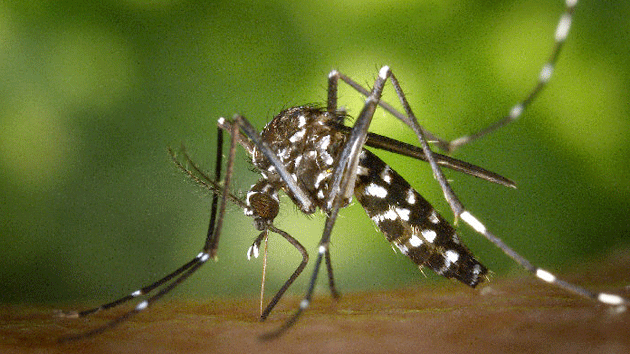
<a href="http://phil.cdc.gov/phil/details_linked.asp?pid=9261">James Gathany</a>/Centers for Disease Control and Prevention
Public health experts have long suspected that a spike in birth defects in Central and South America was linked to the Zika virus, but they didn’t know how. Today, the picture became a little bit clearer.
A team of US researchers has discovered what they believe could be the mechanism by which the mosquito-borne virus hinders brain development in unborn children. Their study finds that the virus targets the outer layer of fetal brain cells, killing some cells and preventing others from dividing to form new cells. The implication is that the brain isn’t given the chance to grow normally because the virus can eat away at the outer layer. This could help explain the reported increase in Brazil of microcephaly—a rare disorder that causes infants to be born with abnormally small heads and underdeveloped brains.
“We’re literally the first people in the world to know this, to know that this virus can infect these very important cells and interfere with their function,” said Hengli Tang, the lead author on the study, in a Florida State University press release. The results were published today in the journal Cell Stem Cell.
Suspicions that the Zika virus is behind the apparent surge in microcephaly have been growing since last year, when maternity wards in Brazil began reporting an unusual number of cases of the disorder. That was about a year into the current outbreak of Zika. Since then, researchers have found traces of the virus in newborns’ brains and in fluid from the placenta of pregnant women infected with Zika.
Earlier this month, a British medical journal published a study linking Zika to another neurological disorder— Guillain-Barré syndrome, which causes the body’s immune system to attack parts of its nervous system. In the worst cases, Guillain-Barré can lead to almost total paralysis (though the paralysis is often reversible). But Zika appears to have relatively mild symptoms or no symptoms at all in most adult cases, and scientists have been struggling to understand the relationship between the virus and the birth defects.
Meanwhile, the World Health Organization has declared the virus an international public health emergency, and officials in several Latin American countries have advised women to delay having children. The pope made headlines by declaring that women are justified in using contraception to prevent the birth of children with microcephaly—a rare pronouncement for the Catholic Church.
Still, the researchers who made this latest discovery caution that their finding doesn’t prove a definitive causal link between Zika and microcephaly. But it could be an important piece in the puzzle.
“I think the study is going to be incredibly important to the understanding of how microcephaly develops,” said Jeanne Sheffield, a maternal health expert at Johns Hopkins University who did not participate in the study, in a university announcement. “Not only does it give us more data that there is a link, but it’s also giving us data that we didn’t have about what is going on at the cellular level. That is huge.”












